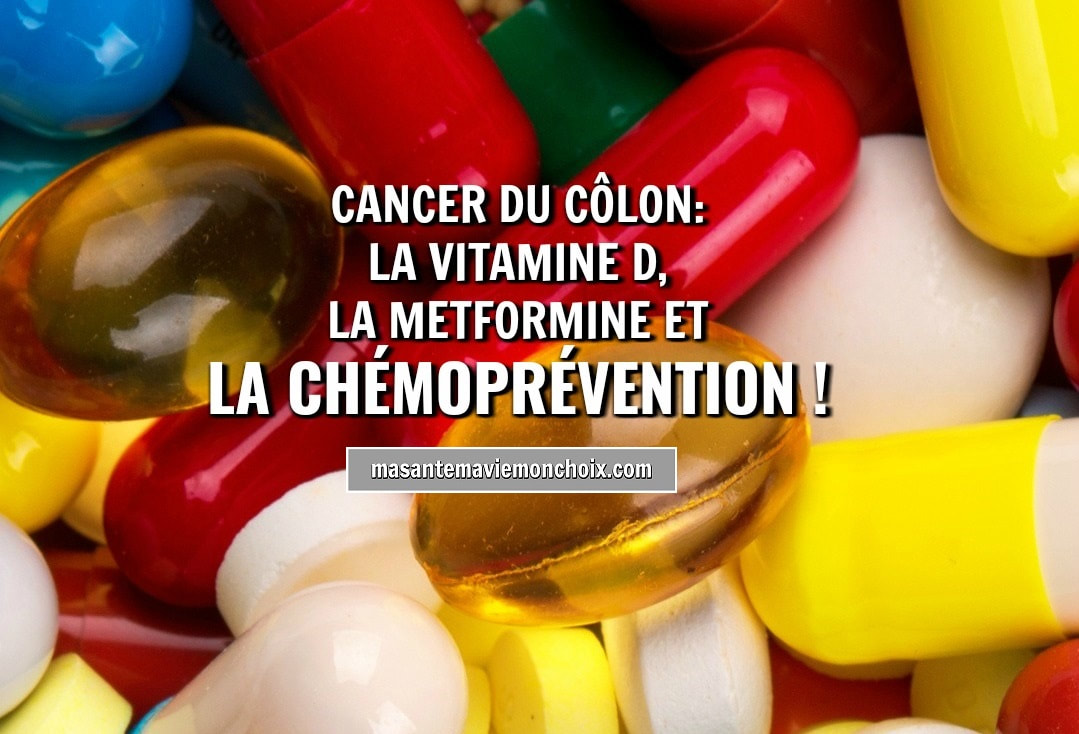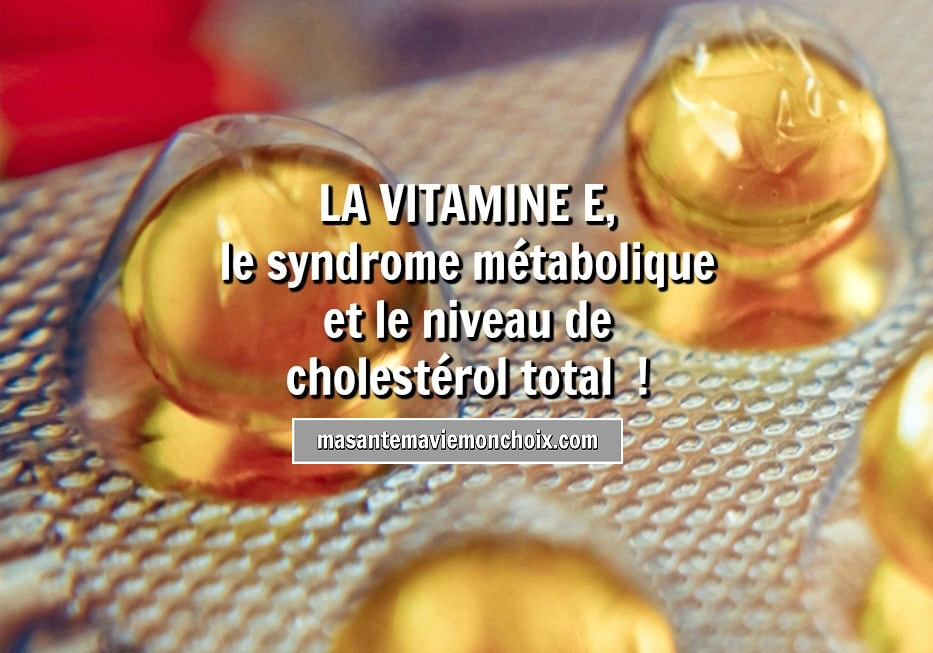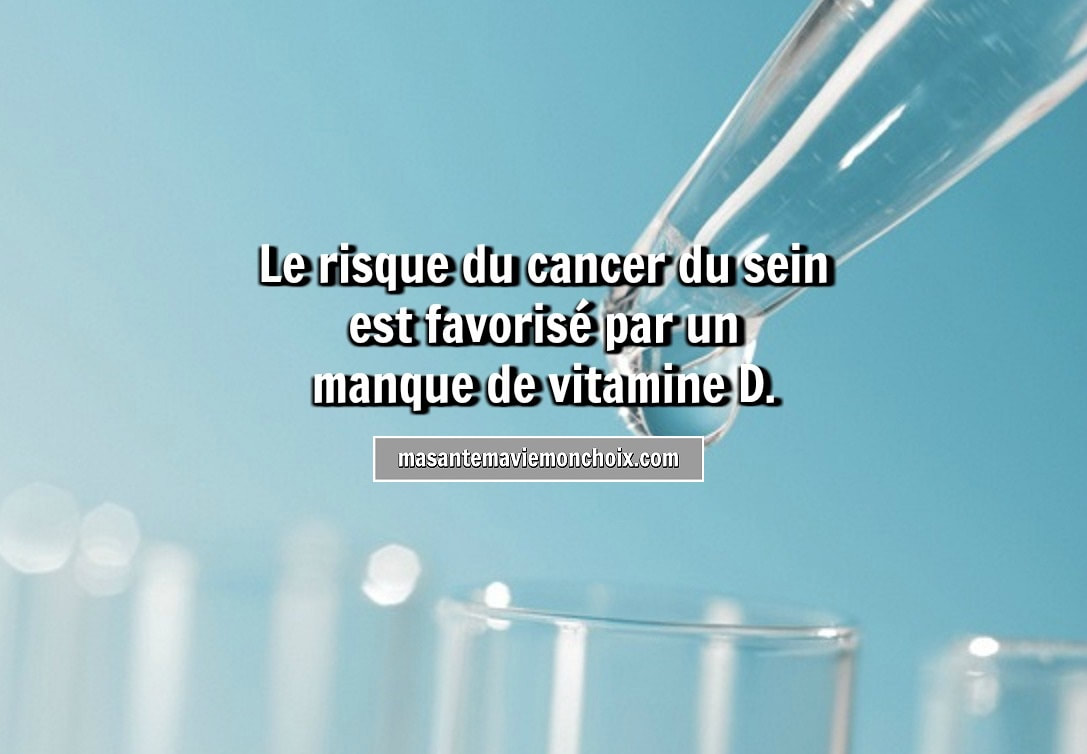|
L'utilisation des thérapies médicales complémentaires et alternatives médicales en tant que thérapies complémentaires continuera de croître et les patients méritent la volonté d'utiliser toutes les approches possibles pour améliorer leurs résultats:
RÉFÉRENCE:
Cancer Prev Res (Phila). 2015 Feb;8(2):139-48. doi: 10.1158/1940-6207.CAPR-14-0128. Epub 2014 Nov 21. Combined use of vitamin D3 and metformin exhibits synergistic chemopreventive effects on colorectal neoplasia in rats and mice. Li W1, Wang QL2, Liu X2, Dong SH2, Li HX2, Li CY2, Guo LS2, Gao JM2, Berger NA3, Li L4, Ma L5, Wu YJ6. Les personnes hypercholestérolémiées ont besoin d'une plus grande quantité d'antioxydants pour réduire le niveau d'oxydation. Aujourd'hui, plus de 40 substances orthomoléculaires ont été testées et ont prouvé aider les personnes souffrant d'hypercholestérolémie. Des preuves cliniques existent également sur l'efficacité de l'utilisation de suppléments dans les troubles lipidiques. Aujourd'hui, on parle de la vitamine E et le niveau de cholestérol total! Les effets de trois doses différentes de suppléments de tocophérol (100 UI / jour, 200 UI / jour, 300 UI / jour) pendant 4 mois chez les femmes chinoises atteintes de syndrome métabolique:
RÉFÉRENCE:
Veuillez lire l'article complet (en anglais seulement) : Int J Vitam Nutr Res. 2010 Jun;80(3):178-87. doi: 10.1024/0300-9831/a000015. Effects of vitamin E on plasma lipid status and oxidative stress in Chinese women with metabolic syndrome. Wang Q1, Sun Y, Ma A, Li Y, Han X, Liang H. Abstract Following the change of dietary structure and living style, metabolic syndrome (MetS) has become increasingly common in China, especially in women, who have abnormal plasma lipid profiles with increased levels of oxidative stress. Vitamin E (VitE) is a powerful chain-breaking antioxidant, which may be a protective factor against oxidative stress-related diseases. This study investigated the effects of three different dosages of tocopherol supplementation (100 IU /day, 200 IU /day, 300 IU /day) for 4 months in Chinese women with MetS. The plasma VitE concentrations increased significantly after the 4 months of supplementation (p < 0.01). The protective decreases in plasma total cholesterol were significant in 200 IU/day and 300 IU/day VitE groups (p < 0.05), but decreases in high-density lipoprotein cholesterol were also significant in all the supplementation groups (p < 0.05). Plasma triglycerides were unaltered (p > 0.05). The indicators of oxidative stress decreased substantially in all of the VitE supplementation groups: malondialdehyde (MDA) was reduced by nearly 50 percent (all groups, p < 0.001), erythrocyte hemolysis was decreased by nearly 40 percent (all groups, p < 0.05); among which the 300IU/day VitE group showed the most significant effect. However, the activity of superoxide dismutase (SOD) decreased after the trial (p < 0.001). VitE provided marked benefits in reducing oxidative stress levels and improving lipid status in women with MetS. Although no dose-effect relationship was observed, 300 IU VitE per day showed the optimal effect. Research is needed to identify potential protective mechanisms or utilization of vitamin E during MetS. Beaucoup de patients atteints de cancer du sein se tournent vers des thérapies médicales complémentaires, comme les antioxydants, les minéraux, les phytochimiques, les oméga 3, etc. Ces molécules présentent une option prometteuse pour la chimioprévention naturelle, sont moins toxiques et ont des propriétés antioxydantes et anti-inflammatoires. Aujourd'hui, on parle de la vitamine D et le risque du cancer:
RÉFÉRENCE
Veuillez lire l'article complet (en anglais seulement) : Integr Cancer Ther. 2017 May 1:1534735417712007. doi: 10.1177/1534735417712007. Circulating Vitamin D and Overall Survival in Breast Cancer Patients: A Dose-Response Meta-Analysis of Cohort Studies.Hu K1, Callen DF2, Li J1, Zheng H1. Abstract Studies have shown that vitamin D could have a role in breast cancer survival; however, the evidence of the relationship between patients' vitamin D levels and their survival has been inconsistent. This meta-analysis explores possible dose-response relationships between vitamin D levels and overall survival by allowing for differences in vitamin D levels among populations of the various studies. Studies relating vitamin D (25-OH-D [25-hydroxyvitamin D]) levels in breast cancer patients with their survival were identified by searching PubMed and Embase. A pooled HR (hazard ratio) comparing the highest with the lowest category of circulating 25-OH-D levels were synthesized using the Mantel-Haenszel method under a fixed-effects model. A two-stage fixed-effects dose-response model including both linear (a log-linear dose-response regression) and nonlinear (a restricted cubic spline regression) models were used to further explore possible dose-response relationships. Six studies with a total number of 5984 patients were identified. A pooled HR comparing the highest with the lowest category of circulating 25-OH-D levels under a fixed-effects model was 0.67 (95% confidence interval = 0.56-0.79, P < .001). Utilizing a dose-response meta-analysis, the pooled HR for overall survival in breast cancer patients was 0.994 (per 1 nmol/L), Pfor linear trend < .001. At or above a 23.3 nmol/L threshold, for a 10 nmol/L, 20 nmol/L, or 25 nmol/L increment in circulating 25-OH-D levels, the risk of breast cancer overall mortality decreased by 6%, 12%, and 14%, respectively. There was no significant nonlinearity in the relationship between overall survival and circulating 25-OH-D levels. Our findings suggest that there is a highly significant linear dose-response relationship between circulating 25-OH-D levels and overall survival in patients with breast cancer. However, better designed prospective cohort studies and clinical trials are needed to further confirm these findings. |
AVIS IMPORTANT:
Veuillez prendre connaissance de cet avertissement et rappelez-vous que le site www.drsuciu.com ne saurait remplacer une consultation avec vos professionnels de la santé. L'information fournie sur le site web www.drsuciu.com est d'ordre général. Avant de prendre toute décision de nature médicale ou si vous avez des questions concernant votre état de santé personnel, adressez-vous à un professionnel de la santé qualifiée. D'aucune manière ces points de vue, commentaires et renseignements ne constituent une recommandation de traitement (préventif ou curatif), une ordonnance ou un diagnostic, ni ne doivent être considérés comme tels. Archives
Août 2017
|





 Flux RSS
Flux RSS